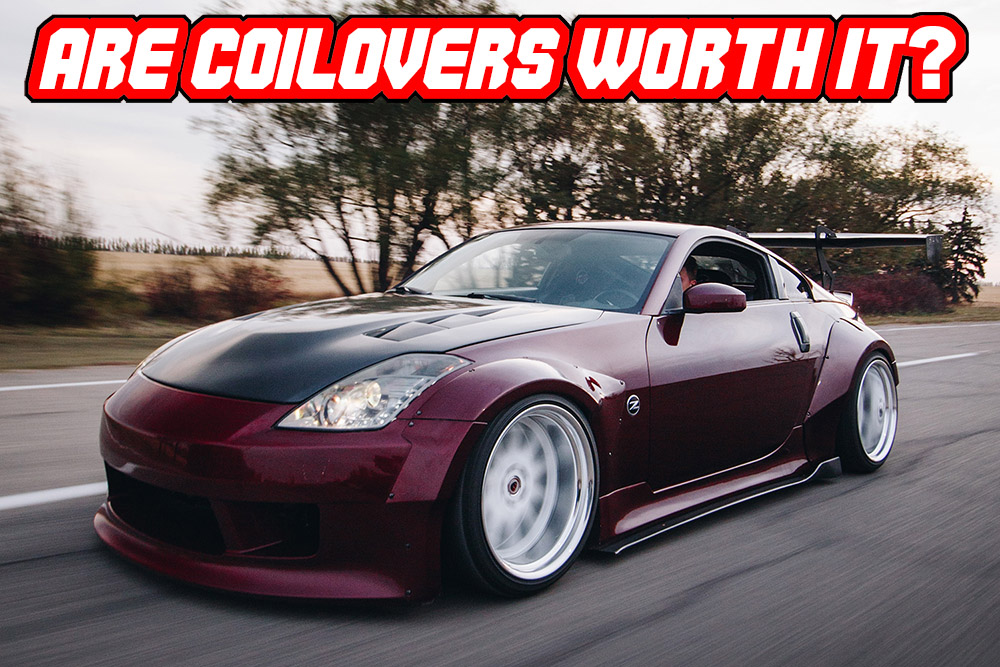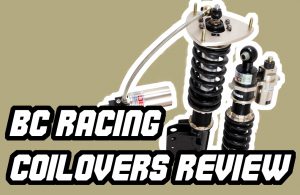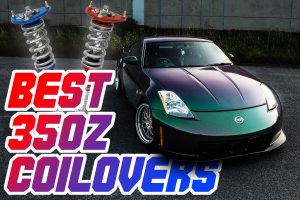Are Coilovers Worth It? And Are They Good For Daily Driving?
“Are coilovers worth it?” is a question that often comes up when someone is looking to lower their car or improve its handling and is considering all the available options.
As someone who has had a number of cars with coilovers and have both daily driven and tracked all of them, I will give you my answer on the matter as well as some facts to help you make the decision.
My short answer is yes, coilovers are worth it. You will no doubt be looking at coilovers either because you want to lower your car, or improve its handling. In either case, coilovers are usually the best option in terms of both price and the benefits you get.
The long answer is it really depends on what exactly you are looking for and what you budget is, however there is usually a coilover kit that will fulfil all of your requirements.
The only exception to this, in my opinion, is if your top priority is comfort and the ability to adjust the suspension on the fly, and you don’t care about handling, then airbags are probably the way to go. This is usually for luxury cars like BMW 7 Series, Mercedes S Class and the like, however some people do put them on sports cars too. If that’s what suits you, go hard as far as I’m concerned (or soft in this case with the airbags).
Back to the coilovers, I’m going to give you the reasons why I think coilovers are worth it whether it’s for daily driving or a track car.
Firstly, What Are Coilovers?
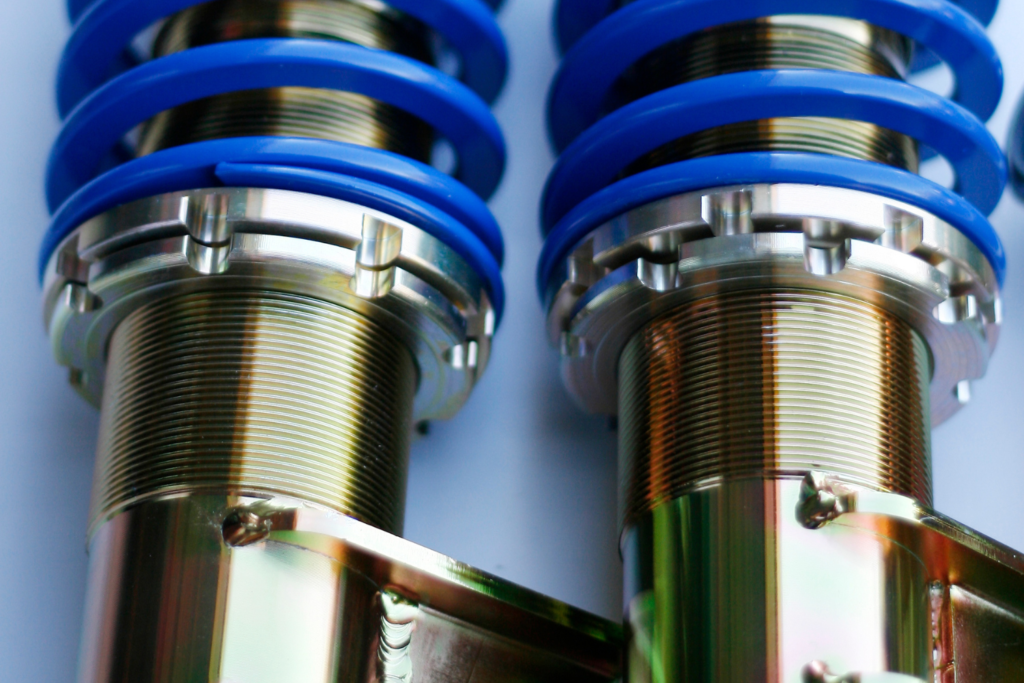
Just in case anybody doesn’t know, I’m going to quickly cover what coilovers actually are.
Coilovers are a type of car suspension usually used for the reason of improving performance and handling of the car. Their main purpose is to reduce body roll and make the car handle better, which can come with some sacrifice in comfort – something we will discuss further down in this post.
They generally feature a shock with a spring around it, thus the name coilover – as in coil over shock (though there are setups with separate shock and spring – usually on the rear).
They are most known for their ability to adjust ride height by having threaded shock bodies which allow you to move the spring perch, or the whole shock body in some cases, up and down to adjust the ride height.
Being performance oriented, they allow you to fine tune your suspension setup and the better coilovers have the ability to also adjust the dampening of the shock so you can set them up exactly as you like.
The Benefits of Coilovers
There are several benefits that come with coilovers, the most notable being the fact that they allow you to adjust your ride height by winding the spring perch (or in some cases the shock bodies) up and down to raise or lower the car.
This feature alone is enough to win the favour of car enthusiasts ranging from hard parkers to pure motorsport die-hards, and is one of the reasons coilovers are so popular.
Many of the better coilover kits allow you to also adjust the dampening of the shocks. Some even go so far as to allow you to individually adjust the bump and rebound, but that’s really only useful if you are trying to shave milliseconds off your lap times. For most car enthusiasts, regular adjustable dampening is more than adequate.
Another benefit of coilovers is that they almost all use universal springs, which means if you are not happy with the springs on your kit, you can buy new springs which suit your requirements more (though bear in mind you might need to revalve the shocks to match the springs if the spring rates are vastly different).
Coilovers Vs Lowering Springs
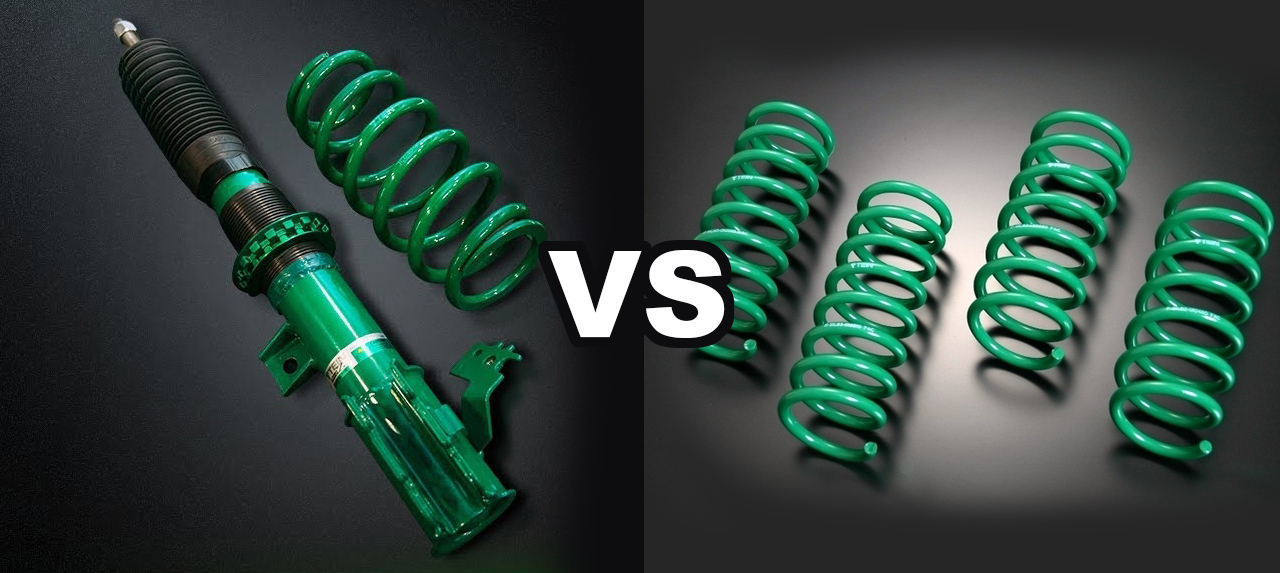
One of the first questions that comes up when coilovers are being talked about is whether or not lowering springs are better.
Now, in my opinion, the only real reason you’d even be considering lowering springs is because they are cheaper than a full set of coilovers, which is a completely valid reason.
However, just be aware that a top quality coilover kit would give you everything that a lowering spring kit would give you, plus they will always handle better than lowering springs, and you’ll get the ability to adjust the ride height and usually the dampening settings with the coilovers.
The thing is, most people think lowering springs are cheaper because they can just buy the lowering springs and slap them on their current shocks. While technically you can do this, there are 2 problems:
- The stock dampers weren’t designed to work with the stiffer lowering springs and weren’t designed to work in that range of suspension travel. So depending on the drop of the springs, you are likely to be hitting the bump stops a lot and will quickly blow the shocks. If you are running mild lowering springs, this is less of a concern.
- The shocks are most likely old and probably need to be replaced anyway, and now you are putting extra load on them by making them work in a range they most likely were not designed to and with stiffer springs. This is going to shorten their life further and you’ll probably find that they blow out soon.
Now, you could argue the fact that you could be buying a complete shock and spring combo, also known as a “cup kit”. In that case, the above points won’t apply, however I would still personally go for coilovers over a cup kit. Here’s why:
Reasons Why I Think Coilovers Are Better Than Lowering Springs:
- A decent cup kit is going to cost you close to, if not the same as what a decent set of coilovers would cost you
- The coilovers give you far more adjustability
- The lowering springs will never, ever sit exactly how you want them to, and you WILL be disappointed when you put them on (trust me on this)
- Then you’ll pull the angle grinder out and consider doing something stupid
- You’ll change something on the car (like the wheels and tyres) and wish you could adjust the ride height, but you can’t (unless you pull out the angle grinder again – not recommended)
- Generally speaking, coilovers will always out-handle lowering springs (thus why race cars use them – you do want a race car, don’t you?)
- Eventually you will wish you just bought coilovers instead, and will end up losing money when you sell your lowering springs for a loss
- Buying coilovers also means you get new shocks and in many cases new strut mounts as well.
I’ve been messing around with these things for over 10 years and believe me when I tell you that I have never bought a set of lowering springs and been 100% happy with them once I installed them. Eventually they all got swapped out for coilovers.
The True Cost of Coilovers Vs Lowering Springs
So what really is the price difference between a set of lowering springs and a decent set of coilovers?
It’s actually a lot less than you think.
A good set of lowering springs will run you anywhere from $300 on the low end to $600 on the high end. That doesn’t include shocks, strut mounts or anything else, that’s just the lowering springs.
A decent coilover on the other hand, such as the TEIN Flex Z, will cost you around $800. This includes the full kit – shocks, springs, strut mounts (some even have camber adjustment), the lot.
Now, the price difference of $300 to $800 is decent. However, if we do a fair comparison and factor in that you haven’t bought new shocks or strut mounts, and if you were to price those in, you’d be looking at around $500 more on the low side. Which puts you at $800, and that’s if you got the cheaper springs.
So now you’ve paid at least $800 to not have ride height, dampening or camber adjustment and to probably be disappointed with the ride height your new springs sit at (because you will be), when you could have just bought the coilover kit and had all that and more.
Are Coilovers Good For Daily Driving?
There’s a common misconception floating around that coilovers are uncomfortable and therefore unsuitable for a daily driver.
This probably comes from the fact that many people buy the cheapest possible coilover kit they can find, which features cheap dampers and unmatched springs, and rides pretty badly.
Now, while cheap coilovers usually do have a harsh ride, there are many factors to consider when choosing the best coilovers for daily drivers.
First and foremost is your personal tolerance for a harsh ride. I spent a great deal of my late teens to mid twenties driving cars which had everything from decent suspension setups and good coilovers, to nothing short of terrible suspension (think uncaptive cut springs and blown shocks). However, to me at the time, I didn’t care, I was just happy that my car was low and I was getting street cred (that’s a joke, obviously).
So the biggest factor in this equation is you, the driver. Now, since you are looking for either better looks or improved performance, I’m sure you are aware that you’ll need to sacrifice a little bit of ride quality.
That being the case, if you still wish to preserve some ride comfort and perhaps also drive your family in the car, then opting for a good kit from one of the best coilover brands, especially one with adjustable dampening will often give you what you are looking for.
Top quality brands like Ohlins or RS-R offer an incredibly comfortable street ride which is close to if not on par with OEM ride comfort, so if you have the money to spend you will be able to get the best of both worlds. However, if your absolute top priority is ride comfort and you don’t care about the handling benefits then perhaps coilovers are not the best option for you.
Aside from that, there is literally no reason why you can’t daily drive on coilovers. I’ve been doing it for around 10 years and have no issues with it.
The Cons of Coilovers
Honestly, in my opinion, there are very few cons when it comes to coilovers. And this is probably why you see so many cars with them.
Yes, you could argue that the ride can be harsher, but that really depends on which coilovers you get and your personal preference.
Aside from that, the upfront cost may be more than lowering springs, but you’re going to end up spending the money anyway when you blow your shocks, or finally decide that you are not happy with the height of the lowering springs. So you may as well save up and get coilovers to begin with.
The only real con I can think of is the legality of them in some places. For instance, in New Zealand, where I was living, if you installed coilovers on your car you had to get the car “certified” (basically an engineer’s sign off) to state the car was safe, regardless of what height you set it to. This would cost you around $600nzd. However, that’s the only place I’ve ever heard of something like that being an issue.
Aside from those few points, I really can’t think of any reason to not get coilovers if you are looking at lowering your car or wanting to improve its handling. And that’s exactly the reason why almost every car I ever had ended up with coilovers.
Conclusion
If you want my opinion – just buy coilovers and be done with it. If you are considering them now, odds are you are going to buy them anyway, so you may as well skip the nonsense and get straight to it.
- BC Racing Coilovers Review – Are They Any Good? - September 12, 2024
- 8+ Best Nissan 350Z Coilover Guide In 2025 - September 12, 2024
- Top 6 Best 2015 Subaru WRX Coilovers - September 12, 2024

